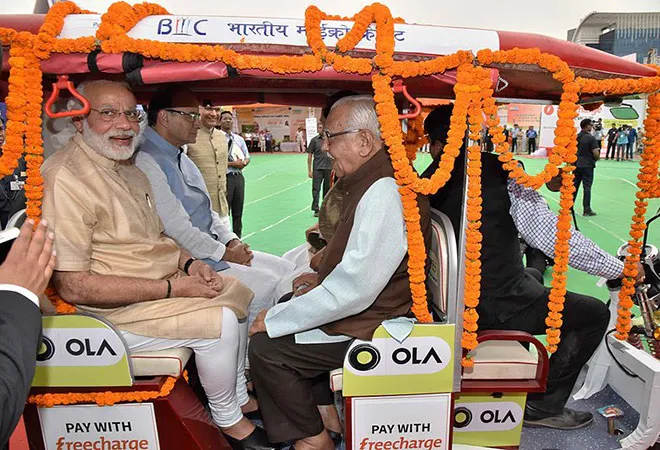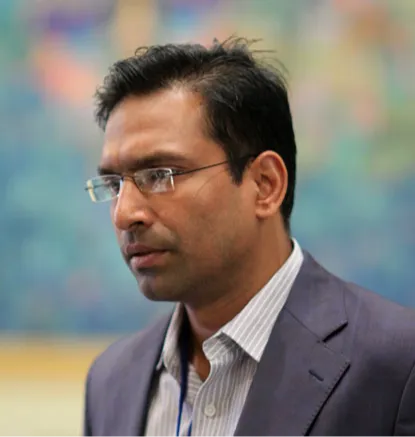Following Prime Minister Narendra Modi’s demonetization drive and his expressed desire to bring transparency in political funding, there were expectations of more concrete measures to cleanse the Augean stables of Indian politics. The government responded quickly, albeit through the Finance Bill. For the first time, the Union Budget 2017 devoted a full section (420 words) on electoral funding reforms. Yet, if these proposals, including the last-minute changes made in the Finance Bill, are critically evaluated, they come as a great disappointment. First, take a close look at some of the key announcements to improve transparency in electoral funding. It is well known that a mammoth 75-80 per cent of funding for political parties come from unknown sources. The government claims that steps like the reduction of cash contribution from Rs 20,000 to Rs 2,000 and issuance of electoral bonds using cheque and digital payments would end such opacity in political donation. In reality, both measures have anonymity inbuilt in them. Transparency will remain a far cry as neither tax officials nor the Election Commission would know the actual sources of funding, let alone the public.
Second and the most worrisome steps are the changes made to the Companies Act. Earlier, through the electoral trusts, private companies were allowed to donate up to 7.5 per cent in the net profit in three financial years to political parties. The Finance Bill that introduced amendments to the Companies Act removed the “carefully thought-about limits” on corporate donations. What is even worrisome is the removal of the earlier requirement of an enterprise disclosing the name of the political entity to which the contribution was made. Thus, at one stroke the government has opened the floodgates for special interest groups and corporate lobbyists to influence the country’s democratic politics.
Read also | < style="color: #960f0f">Union Budget: A good beginning to cleanse political funding
While the government might be genuinely interested in expanding the supply of ‘white money as often claimed by the finance minister, allowing unlimited corporate donations (where the company is under no obligation to reveal the name of the party to which donation was made) can prove disastrous for the country’s body polity. The budgetary measures on electoral trusts are akin to the Citizens United of the United States. The 2010 ruling of the United States Supreme Court, which removed the restrictions of corporate donations on the basis of First Amendment that guarantees free speech, opened the floodgates for big businesses, mainly pharma, arms companies, oil and insurance mafia, to fix candidates and shell out millions for candidates to back their causes. India is not immune to such pernicious influence. As vividly captured in the Radia tapes and a series of high- profile scams and scandals ,notably 2G and Coalgate, quid pro quo is becoming a norm, not an exception.
Yet, the most long-term negative impact of anonymity provision and the wholesale withdrawal of restriction over private sector donations would be that they would deepen the growing inequity in political finance. Given their dominance over economic and administrate apparatus and greater chances of capturing political powers, the large and established parties will draw undue advantage from the new measures that allow unrestricted donations via electoral trusts and bank bonds. Smaller and newer parties would find few donors from these initiatives and in the absence of public funding of political activities, they stand further marginalised.
Read also | < style="color: #960f0f">Will Modi utilise demonetisation to clean up corrupt political funding?
Finally, what most analysts have failed to notice is that the budgetary measures have sealed the fate of state funding of politics. The deletion of the 7.5 per cent cap on corporate funding to political parties and the issuance of electoral bonds should leave no one with any illusion about the government’s determination to expand all possible channels of funding opportunities for political parties than to introduce state funding. Further proof is that no major democracy has state funding and unrestricted access to corporate sector funding at the same time. While this is a tough policy choice for the government to make as it would involve huge money from the public exchequer, the budgetary measures on political funding reforms will go down as an embarrassment to a country that claims to be the poster boy of transparency revolution. India’s Freedom of Information Act, or RTI, as it is popularly known, is a much sought-after instrument among the countries from the Global South. Coming on the heels of India’s enviable transparency record in other domains, the budgetary measures on political funding reforms are a step backward. To conclude, while most democracies, even new ones, are embracing stringent transparency norms and robust campaign finance regime to check the growing role of money in politics, India seems to be caught in a time warp.
This commentary originally appeared in DNA.
The views expressed above belong to the author(s). ORF research and analyses now available on Telegram! Click here to access our curated content — blogs, longforms and interviews.




 PREV
PREV


